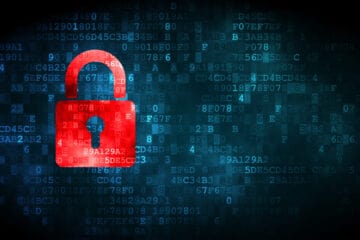Data privacy – a term we often hear but might not fully understand, right? Picture a vault holding your donor’s personal info. Now, imagine that vault wide open. Scary, isn’t it?
The digital age has exposed that figurative vault to threats unless we take action. This blog is your complete guide to securing that vault: safeguarding donor data, strengthening digital defenses, and establishing trust.
Reflecting on Digital Evolution: Nonprofits in a New Age
Remember those heartwarming moments when donor interactions were sealed with genuine handshakes and simple paper receipts? Ah, the times when personal connections and trust were integral to every donation.
While we still value those personal touches, fundraising has gracefully evolved with the digital age.
Today, nonprofits are embracing a dynamic fusion of technology and philanthropy. Online campaigns resonate with donors worldwide, and sophisticated databases meticulously record each interaction.
The potential of this digital shift is impressive. But, like any new journey, challenges arise.
As we move from in-person events to digital platforms, the scope of donor data expands significantly.
It’s not just about knowing Mr. Smith’s address anymore. Now, we handle email exchanges reflecting heartfelt commitments, insights from online behaviors suggesting interests, and sensitive financial details that highlight trust.
Understanding the Stakes: Why Donor Data Privacy is Crucial
While achieving financial goals is essential, safeguarding the sacred trust bestowed upon us by our supporters is paramount.
Imagine, just for a moment, the ripple effects of a data breach – years of cultivated trust could be eroded in the blink of an eye. This leads us to an essential reflection: Are we truly doing justice in protecting the sanctity of our donors’ data?
Here are compelling reasons why ensuring donor data privacy isn’t just good practice, but an ethical obligation.
- Building Trust: Donors trust us when they give, so safeguarding their info respects that trust.
- Protecting Reputation: A nonprofit’s rep is vital. A breach can make donors wary.
- Legal Consequences: Breaches now mean fines and legal issues, hurting finances and reps.
- Stronger Bonds: Securing data builds lasting bonds. When donors feel safe, they support longer.
- Personal Privacy: Some donors want privacy. Breaches risk their safety.
- Financial Safety: Data breaches can lead to fraud, hurting donors and us.
- Smooth Operations: Data safety keeps us running well. Breaches disrupt campaigns and drain resources.
In the digital era, it’s not about whether to focus on data privacy or use fundraising tools, but how quickly and effectively we can strengthen our defenses.
A Closer Look: Types of Donor Data at Risk
Your donor database is valuable to both you and cybercriminals. What details are we protecting?
- Personal Identifiable Information (PII): Names, Social Security numbers, birthdates, mother’s maiden names, addresses, and medical records.
- Contact Information: Home and mobile phone numbers, email addresses, and fax numbers.
- Financial Information: Credit card information, bank accounts, credit scores, and other money-related records.
- Engagement History: Previous donations, event attendance, emails exchanged, and fundraising organization memberships.
Think of your donor data as gold bars in a safe. Each type of information, whether it’s personal or financial, represents a bar that thieves would love to get their hands on.
So how do we keep these gold bars secure?
1. Unpacking Regulations: GDPR, CCPA, and Beyond
Laws such as the General Data Protection Regulation (GDPR) in the EU and the California Consumer Privacy Act (CCPA) in the U.S. have redefined the landscape of data privacy.
But how do these apply to nonprofits?
Compliance isn’t just about avoiding penalties. It’s about building a foundation of trust with your donors.
Rules may seem limiting, but they’re actually principles that can aid in building a safer and more open connection with your donors.
2. Crafting a Fortified Defense: Cybersecurity for Nonprofits
Cybersecurity is the practice of safeguarding digital assets from cyber threats and unauthorized access.
A fortified defense is not just about layering protective measures, but integrating them seamlessly. And while the terrain might seem intricate, there’s a plethora of tools and expertise available to guide us, ensuring that our digital bastion stands tall against even the most crafty of adversaries.
Best Practices for Cybersecurity for Nonprofits
- Layered Security: Use various levels of protection so if one fails, another stops the threat.
- Train Staff: Keep your team informed about cyber risks and teach them to spot possible attacks, like phishing.
- Regular Backups: Always have updated copies of crucial informationstored in a safe place.
- Two-Step Verification: Add extra security with 2FA for sensitive info, not just passwords.
- Regular Security Checks: Keep checking your security, and get experts if needed, to fix weaknesses.
3. Building Trust: Transparency in Data Collection and Use
Just as we seek trust in personal connections, shouldn’t our organizational relationships meet the same criteria? Imagine feeling left in the dark about things – that’s not what our donors deserve.
So, when sculpting your data collection policies, what essential elements should be meticulously woven in?
- Data Types: Clearly list what you collect—names, addresses, transactions, online behaviors, and more.
- Why Collect: Explain why you gather data—donor recognition, analysis, tailored communication.
- Collection Methods: Share how you collect—online forms, events, newsletters, etc.
- Using Data: Explain how data helps—internal analysis, donor engagement, etc.
- Sharing Data: If shared, say so—analytics, marketing. Reassure no unwanted sharing.
- Security: Highlight strong security—show you protect data well.
- Updates: Promise to inform of policy changes and welcome feedback.
4. Strengthening Our Strongest Assets: Knowledge and Vigilance for Staff & Volunteers
It’s crucial that those who handle sensitive donor data have the right knowledge and expertise. Even a small mistake, like opening a suspicious email by accident, could put our entire mission at risk.
It’s not just about avoiding errors; it’s about creating a community where every member feels responsible for preserving our donor relationships and knows how to do so.
It’s an investment in building confidence, empowering our team, and strengthening the foundation of trust that our donors generously give us.
And for optimal efficiency, Beest.app – a trusted and reliable fundraising software – can help with your training and development needs.
5. Cultivating Data Privacy Culture: More than Compliance
While aligning with laws is vital, real data protection goes further. It’s about building a mindset where every member sees data privacy as part of their work, not just a task.
- Building Trust: Just as plants thrive with regular watering, emphasizing data privacy nurtures donor trust. This trust turns into strong support and closer bonds.
- Stronger Against Threats: Imagine an immune system. A solid data privacy culture readies your organization for outside threats, ensuring you’re ready for challenges.
- Empowering Team: When people understand data protection, they engage more. They’re not just following rules; they’re defenders of the organization’s mission.
- Adapting to Change: The digital world shifts often. A strong data privacy culture helps your organization adjust without losing core values.
- Enhancing Reputation: In a world of data breaches, valuing data privacy makes you stand out. This commitment reassures donors and attracts security-minded supporters.
In short, making a data privacy culture is like tending to an ecosystem. It needs care and patience, but the rewards – strengthened organization, solid trust, and a dedicated team – are well worth it.

Tools and Technologies for Donor Data Privacy Management
When it comes to ensuring donor data privacy, embracing tools and technologies is not just about enhancing security – it’s about displaying our commitment to the protection of our supporters.
Digital Fundraising Software
Beest.app emerges as a frontrunner in the fundraising software realm. Not only does it streamline your fundraising efforts, but it also places paramount importance on donor data security.
Designed for nonprofits, it guarantees your donor’s data stays secure while you stay dedicated to your mission.
Artificial Intelligence (AI)
Using predictive analytics and machine learning, AI can find strange patterns or possible threats, giving instant alerts. This means spotting risks before they become bigger issues.
Blockchain Technology
Often associated with cryptocurrencies, blockchain offers an immutable, decentralized ledger system.
For nonprofits, this means ensuring transaction and donor data authenticity without any risk of tampering. It provides transparency without compromising on security.
Multi-Factor Authentication (MFA)
A straightforward yet powerful tool, MFA requires users to provide multiple forms of identification before accessing donor data. This added layer of security ensures that even if a password is compromised, the data remains protected.
Data Masking Solutions
Instead of showing real data, masking solutions display a sanitized version of it, especially useful during testing or analytical reviews. This ensures that while your team can work with the data, its actual sensitive essence remains concealed.
Cloud Security Platforms
Cloud solutions come equipped with high-grade encryption and backup capabilities. By selecting a reputed cloud provider, you’re not just storing data; you’re protecting it against potential breaches and ensuring its availability.
End-to-End Encryption Tools
These tools guarantee that data, whether moving or stored, stays encrypted. This way, only the sender and recipient can decode it.
In a time of rising cyber risks, this secures your donor data’s integrity at every stage.
Final Thoughts | Turning Your Data Fortress into a Trust Castle
In this era of digital change, safeguarding donor information is a commitment to those who support our cause.
After all, donors aren’t just data; they’re the heart of our missions, deserving strong assurance of their data privacy. Hence, we’ve created a comprehensive approach to fostering a secure culture in your organization.
So, ready to enhance donor data privacy? Try Beest.app, the digital fundraising software that ensures a secure mission.
Remember, when you choose the right tools, you’re not just keeping threats out—you’re building trust.
